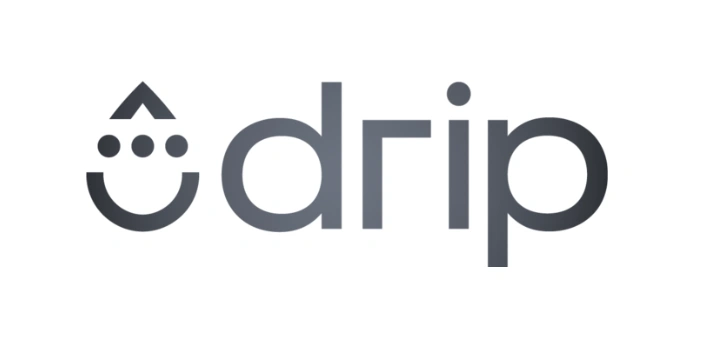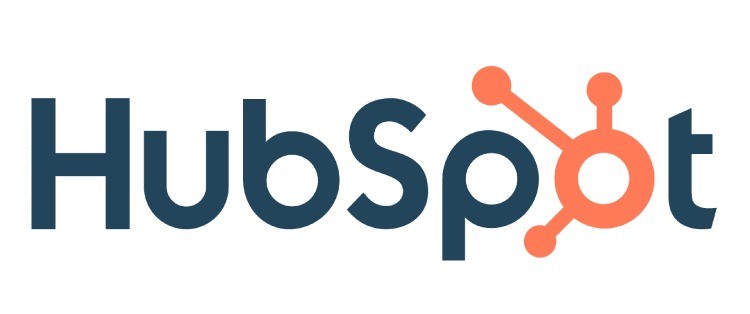The Benefits of Using Marketing Automation Platforms
By Bhupati Barman
August 26, 2024
Update on : August 25, 2024

In today’s fast-paced world, marketing is more important than ever. It helps businesses get their products and services in front of people, attract new customers, and satisfy existing ones. With so many companies competing to get people’s attention, those who don’t use smart marketing methods are easily left behind.
This is where marketing automation platforms come in. They are like digital tools that help businesses do their marketing in a more efficient way. These tools can do repetitive tasks quickly and help businesses make smart decisions using data. They make it easier to provide a personal touch to a large number of customers based on their journey and habits. All this helps businesses save time and money while improving their connection with their customers at the same time.
What is Marketing Automation?
Digital marketing has many tiring and repetitive tasks such as reminders, follow-ups, reporting, drafting emails, etc. These tasks are very easy, but they take a lot of your time and effort. Leaving you with less time to focus on more meaningful tasks that have a bigger impact on your business and sales.
Marketing Automation is a technique in which you use Marketing Automation Platforms to do these repetitive tasks. You set up these tasks once, and after, they will continue operating in the background without your intervention.
For example:
Let’s say a company has a sales website where they sell clothes. Whenever a new customer signs, the marketing automation platform sends them an automatic welcome email. The email might contain a coupon code for a discount to encourage the new customer to buy something from the website.
If a customer puts some items in their online shopping cart but forgets to check out, they will get an automatic email reminding them about the items in their cart. After that, if a customer buys something from the website, the system will automatically send them follow-up emails. This includes thank you emails immediately after the sale. Review requests a few weeks later or emails about items the customer might be interested in based on their collected data.
In all these cases, marketing automation tools handle repetitive and time-consuming tasks. At the same time, it also provides a personalized experience to every customer, building a strong connection between the customer and the company.
How to use marketing automation for your business?
Marketing automation works for businesses of any size, both big and small. Big businesses with many employees can free their workforce from repetitive tasks and focus on more important tasks. Small businesses with few employees can use market automation tools to fill their workforce gaps. Following are some ways in which marketing automation platforms can help businesses:
1. Foster Relationships:
People usually don’t buy from a company, website, or brand the first time they hear about it; it’s human nature not to trust unfamiliar things. That’s why it is very important to nurture relationships with your customers; marketing automation tools can help in this process. By sending personalized emails, and regularly sharing more of your products, you can persuade your customers and increase conversion rates.
2. Helps in Sales Follow-ups
Marketing automation platforms can send automatic follow-up emails to customers who visit your website, make a purchase, abandon their cart, inquire about a product etc. This can help increase customer interaction and sell more products.
Moreover, these automation tools also send follow-up reminders to the sales team to help them focus on more promising leads.
3. Track Customer Journey
In today’s business world, understanding your customer is vital for any business. And marketing automation tools can help you understand your customers by tracking their journey on your website. They can give you insights on things like how much time it took to make a purchase. What information they require before purchasing, and which marketing strategies work best.
4. Social Media Automation
Every company or brand needs to highlight its online presence, or it risks being left behind by its competitors. Keeping your brand presence on social media is a part of that, but it can be time-consuming to do manually.
With marketing automation platforms, you can make all your posts once and then schedule them to be posted to your social media daily. This will save time and ensure consistency in your company’s online presence.
5. Automatic Reporting
Marketing automation tools can help you create data visualizations and analysis reports. This can save you hours that you would otherwise spend on creating these reports by yourself.
6. Simplify communication using Chatbots
Chatbots are programs that respond to pre-set questions, links and answers. They are an interactive tool that can automatically assist your customers. This means if they have a simple or common problem, the chatbot might be able to answer their question in seconds. They wouldn’t need to wait minutes to connect to a customer service staff member. Chatbots can add more value to your business by reducing bounce rates, capturing customer data, and saving resources.
How does marketing automation affect your customers?
Marketing automation does more than boost your marketing efficiency, conversions, and sales. It helps customers by dealing with the problems that have emerged in this new digital era. People nowadays are overwhelmed with information, both useful and useless. All this makes it very hard for your potential customers to find your company online.
And when they do find you online, they have to go through a disjoint experience as they move from one team to another across channels and platforms. Marketing automation can help ensure a seamless connection between different teams. And thus, providing customers with a more personalized experience.
Show more relevant content:
Marketing automation allows you to better understand your customers by collecting and analyzing their behaviour, interests and preferences. It allows you to personalize the content that every customer sees, which means you no longer have to use generic ads and emails.
Everything an individual sees is tailored according to their needs and preferences. It saves customers time by providing them with information that is more relevant to them. It could be the latest product they were interested in or some product or service that could solve a problem they are currently facing. Marketing automation ensures that any content they see is relevant and timely.
Provide better answers faster:
Responding to your customer’s queries and questions is the key to customer satisfaction and retention. Marketing automation can assist you in prioritizing tasks and managing leads. This means customers get swift answers to their concerns and queries.
By storing and analyzing customer data, the system allows customer service teams to deeply understand each customer’s history. This way, they can customize the answers based on customers’ past interactions, purchases, or overall value.
Offer seamless, omnichannel experiences:
Customers interact with your business through multiple channels in today’s interconnected world. Marketing automation helps unify these channels and ensure that your customers have a smooth experience no matter how they connect with your business.
It collects data from various platforms and provides a consistent and personalized experience across all channels. This could be as simple as remembering a customer’s preferences. Or as sophisticated as offering targeted promotions based on past purchases.
Whether the customer contacts you through email, social media, or your website, they will get the same high-quality, personalized experience. This eliminates the frustration they would feel due to having to repeat the information or encountering inconsistent service.
How to choose a marketing automation Platform?
Choosing the right marketing automation platform requires careful consideration of your specific needs, budget, and goals; the following are key steps to help you make decisions.
1. Define your Goals and Needs
The first and most important thing you need to do is to identify what you want to achieve through marketing automation. This could range from improving lead generation, enhancing customer engagement, and optimizing emails, to streamlining the entire marketing process.
2. Evaluate Features
Based on your wants and needs, make a list of features that you want from a marketing automation platform. They could include features such as email marketing, customer segmentation, CRM integration, social media automation or management, analytics and reporting, A/B testing, and mobile optimization.
3. Consider User-Friendliness
Now, you can choose a marketing automation platform; the first thing you must consider is user-friendliness. You want a platform with an intuitive interface and helpful support service so your team can use it with minimal training. An overly complex system can slow down your team as they need a lot of time to get used to it.
4. Check integration capabilities
Another important thing to consider while choosing a marketing automation platform is its integration capabilities. The platforms should seamlessly integrate with the tools you already use, such as CRM, social media, and content management systems.
5. Check Scalability
The scale of your business will grow over time, so you want a platform that can handle this growth. It should handle increased data volume and additional features as your business expands.
6. Check the platform’s reputation
One of the best ways to assess whether a platform is good is to check its online reputation. Check the internet for reviews, case studies, and testimonials related to that platform. You should choose a platform famous for quality customer support, regular updates, and feature enhancement.
7. Budget
The last thing you need to do is to check whether your budget matches the price the platform requires. Remember to include extra costs such as training, maintenance, and upgrade costs when calculating the cost.
8. Free trial
If the platform provides a free trial, check whether it meets your needs before spending money on it. This is a great way to check the platform’s user-friendliness, features, and support.
Note: The best marketing automation platform is not the one with the most features or the most expensive. It’s the one that fulfils your organizational needs and fits within your budget.
Best Marketing Automation Platforms
There is no overall best marketing automation platform that we know of yet, but some platforms are very good at what they do; the following are some of the platforms we recommend.
1. Marketo

Marketo is one of the best market automation platforms. It helps you create focused marketing campaigns by observing and analyzing customer behaviour. You can also use it to test and compare different versions of your marketing strategies using split testing and see which works the best. It can also provide useful insights about your marketing and advertising campaigns.
Marketo is more focused on emails and using them to communicate with customers. It can be useful in the lead scoring and lead nurturing phase.
Price: Makreto has no fixed price, you need to contact their sales department, who will give you a quote based on your situation.
2. Drip

Drip is a marketing automation platform suitable for small businesses. And E-commerce brands can especially benefit from its unique automation features. Drip allows you to create and run multichannel campaigns from a single platform.
You can use this tool to promote your brand, products, and services through email, social media, SMS etc. Another important feature of this platform is that it can seamlessly integrate with Shopify and other platforms like it. This can help you make the most out of your customer data.
Price: Drip’s premium plan starts at $39 monthly; you have a 14-day free trial.
3. Hubspot

Hubspot is a useful platform that combines customer management and marketing tasks to create an effective marketing solution. It stands out by going beyond standard customer management software. It helps build specific marketing campaigns to attract more potential customers.
Another important quality of Hubspot is its simplicity; it lets you manage forms, emails, and social media campaigns from one place. It lets you monitor marketing progress and metrics in real-time, so you can make adjustments as and when you need.
Price: It has free plans where you can use its limited features; the premium plans start at $50 per month.
4. Pardot

Pardot is a business-to-business marketing automation tool by Salesforce. It helps businesses connect and communicate with potential clients to increase marketing efficiency. It provides various features that help achieve this goal, such as lead management, email marketing, sales alignment, and detailed ROI reporting.
With Pardot, you can automate and personalize your marketing communication to nurture leads and move them through the sales pipeline more effectively. It also allows your sales and marketing teams to better align their efforts by providing a shared view of leads and prospects.
This ensures that every team involved in the process has the same information. Which then leads to more effective communication and improved results. One of the strongest features of Pardot is its analytics and reporting using advanced artificial intelligence.
The price of Pardot is on the higher side, which might not be affordable for small businesses. But, if you have sufficient resources, you can take your B2B marketing to the next level.
Price: It provides no free packages; the premium plans start at $1,250.
5. MailChimp

MailChimp is one of the best email marketing automation platforms. It helps businesses of all sizes create and send email campaigns to customers and track their performance.
It also allows you to split your email list based on several conditions, such as physical location, interests, and purchase history, thus allowing you to send more targeted emails. MailChimp also allows you to set automatic emails that are triggered when customers perform certain actions, such as subscribing to a list, registering an account, or making a purchase.
This platform allows you to analyze and compare your email campaigns and see what works best. It also provides detailed reports and analyses about email campaigns. This can help you track the performance of individual campaigns and make adjustments when necessary.
Price: Mailchimp provides a free basic package; premium packages start at $13.
















